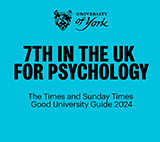
PhD for Neural Network: Predicts Reoffending
Posted on 8 May 2012
Currently decisions about parole are based on risk assessments which essentially sum an offender's scores on a range of different risk factors. These results are combined with clinical judgement to make a decision about whether an offender can be safely released. Bad decisions can be costly in terms of damage inflicted by released prisoners who go on to commit further crimes but also in terms of the costs involved in continuing to detain prisoners who no longer pose a threat.
Dr Pearson's work used an advanced computer-based technique to achieve more accurate predictions than are possible with current tools. Inspired by the way the brain works, neural networks can combine sources of information in more complex ways and can learn to categorise input patterns (in this case risk factors and other information about prisoners) based on a large number of examples.
If the initial promise of this work is borne out it could ultimately lead to more accurate risk assessments which would mean fewer dangerous individuals being released and a reduction in the costs of unnecessarily prolonged detention.
The PhD research was funded by Durham Tees Valley probation trust and supervised by Prof Padraic Monaghan (now Lancaster University), Prof Cynthia McDougall and Dr Tom Hartley
